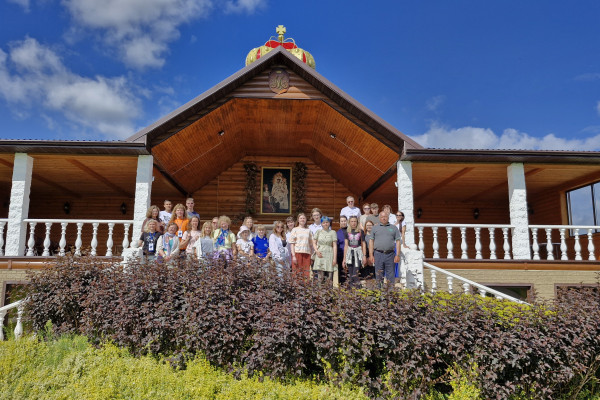Participants of the Summer School of the Belarusian Language and Culture visited historical sights of the Grodno region

Today, on August 13, the participants of the Summer School "under the bright name of Kupala" went on a trip to the Grodno region to dive deep into the Belarusian culture. They visited the Catholic church in the agro-town of Trockeli in the Voronovsky district, the Volny Melnik tourist complex and the village library with its unique "contact“ ethnographic museum room in the House of Culture in the agro-town of Dvorishche in the Lida district, as well as the St. Cazimir Catholic Church in the agro-town of Vselyub.
The first stop was the Church of the Annunciation of the Blessed Virgin Mary in the agro-town of Trockeli, which is a monument of architecture and wooden architecture of the early 19th century. During the tour, the participants of the Summer School learned about the history of the church, as well as about its main value – the icon of the Mother of God of Trockeli.
After that, the travelers went to the Volny Melnik tourist complex, located on the site of an ancient farmstead, on the territory of which an ancient stone watermill has been preserved. Walking through the picturesque territory of the complex, listening to the life of that time and looking at the exhibits, the tourists were able to immerse themselves in the times of medieval Belarus.
The next stop was the agricultural town of Vselyub in Novogrudok, where the St. Cazimir Catholic Church is located, the oldest Belarusian Catholic church combining Belarusian and Western European architectural traditions. There, the participants of the Summer School of the Belarusian Language and Culture took part in a bread baking master class with great pleasure. All the secrets of the process were revealed to the guests: How to knead the dough correctly, what ingredients to use, and how long it takes to achieve the perfect result. The master class was an excellent opportunity not only to master the craft, but also to deepen knowledge about Belarusian traditions.
Such events, of course, not only broaden the horizons of foreign guests, but also arouse a keen interest in the Belarusian language, history and culture.







































